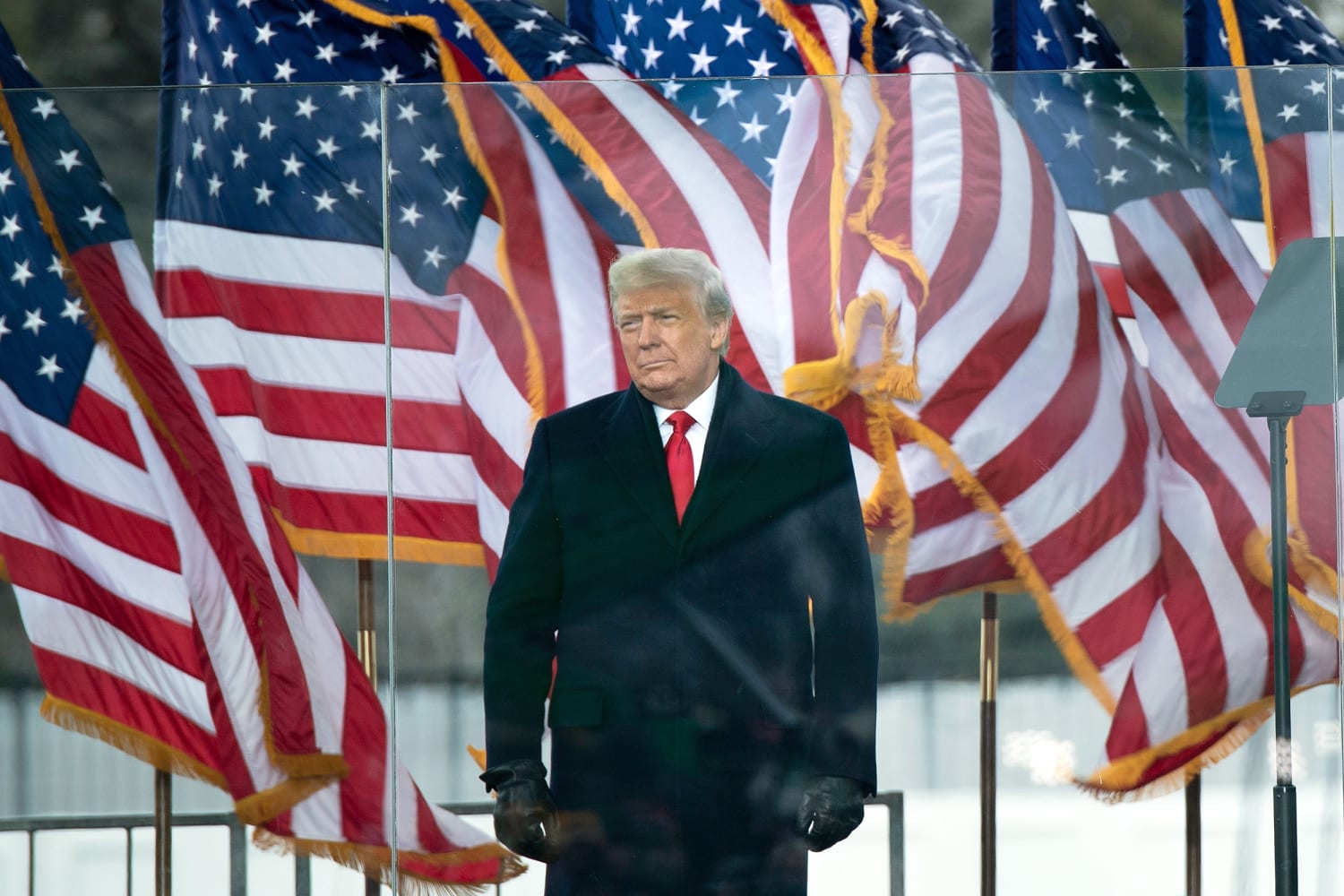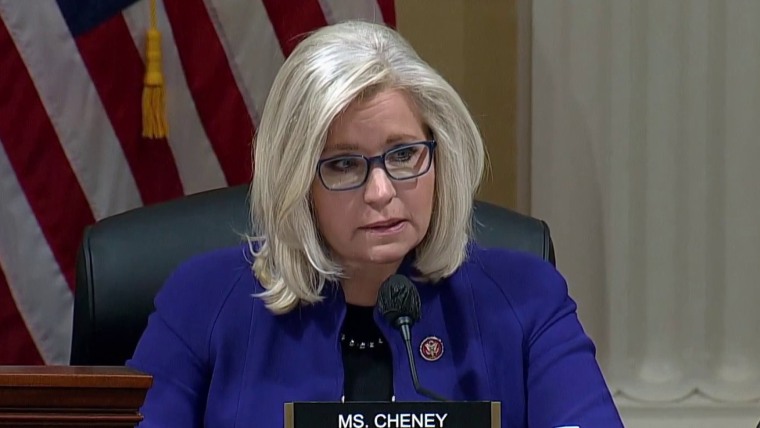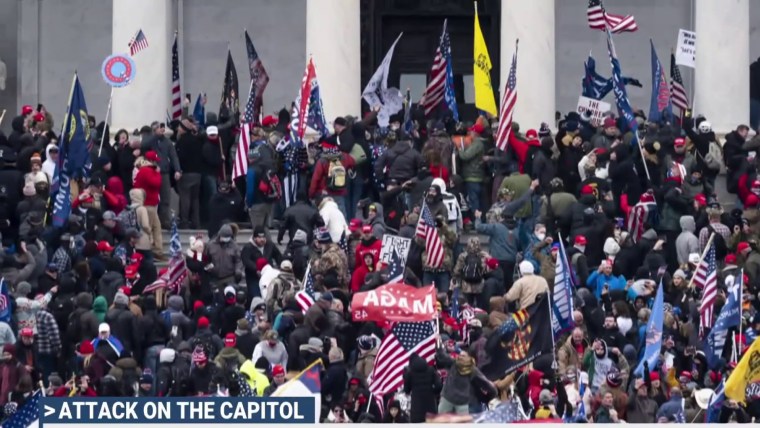On Aug. 25, the House committee investigating the Jan. 6 insurrection issued a request for White House documents pertaining to the Capitol violence and what led up to it. The requested information includes a draft of former President Donald Trump’s speech for the rally that proceeded the mob attack, a memo about potential lawsuits against states that President Joe Biden won, and talking points about alleged election “irregularities” in a Michigan County.
Biden declined to assert executive privilege over the documents.
Biden’s White House Counsel Dana Remus declined to assert executive privilege over the documents, claiming, among other things, that “constitutional protections of executive privilege” should not be used to shield “a clear and apparent effort to subvert the Constitution itself.” Not surprisingly, Trump filed a lawsuit in the D.C. District Court to block the committee. He filed the lawsuit on October 18. On Thursday, the court will hold a hearing on whether to issue a preliminary injunction to prevent the release of the documents.
A preliminary injunction is an “extraordinary and drastic remedy.” Because the documents are scheduled to be released to Congress by Nov. 12, a preliminary injunction is vital if Trump hopes to keep the information secret.
And Trump faces an uphill battle at Thursday’s hearing.
To show that he is entitled to a preliminary injunction, Trump must prove four main points. The first is that he must present “clear” evidence that he would be likely to succeed on the merits. In other words, to be granted a preliminary injunction, he must show that he’s likely to actually win his case at the conclusion of the proceedings.
But right out of the gate here, Trump runs into trouble. To begin with, executive privilege only covers communications related to the “performance of [a president’s] responsibilities.” And a president’s responsibilities of office do not include “stop the steal” rallies, nor does a president have anything to do with conducting, certifying, or challenging elections. Therefore many — if not nearly all — of the documents requested should be ineligible for executive privilege protection. Moreover, even when documents are privileged, the privilege is not absolute if Congress has a pressing need to see the info.
Another problem for Trump: Under the Presidential Records Act of 1978 (PRA), as modified in 2014, a former president can be “heard” on the issue of executive privilege, but the sitting president has the final authority over whether the privilege should be asserted.
The thrust of Trump’s argument was that the request was unconstitutional because it violated the separation of powers doctrine and is “too burdensome.” To support his burdensome argument, he quoted Mazars v. Trump, which stated that, as one criterion, “courts should assess the burdens imposed on the President by a subpoena, particularly because they stem from a rival political branch that has an ongoing relationship with the President and incentives to use subpoenas for institutional advantage.” But Trump is no longer president, so he no longer represents a “rival branch of government,” and thus the Mazars criterion should not apply.
Even if Trump does manage to show that he has a strong case on its merits, his (and his lawyers’) work at the Thursday hearing will have just begun. Because he then moves on to the second element, which requires “clear” evidence that he is likely to suffer irreparable harm if the preliminary injunction is not granted.
Courts have held that the injury Trump suffers must be “both certain and great” and “of such imminence that there is a clear and present need for equitable relief to prevent irreparable harm.” The only “harm” Trump has claimed so far is that advisors could be less likely to talk candidly to a president if they think their communications will be released to Congress. (But, of course, advisors should not be talking candidly to a president about how to overturn an election.)
Basically this means that to prevail, Trump must show that hardship or damage to him is so great that it outweighs the congressional need for the documents.
If Trump somehow manage to show that he’s likely to win his case on the merits and that he would suffer irreparable personal harm if the documents are released to Congress, he must then show that the “balance of equities” favors an inunction. “Balancing the equities” means that the court balances the burden or hardship to each party against the benefits to each party. Basically this means that to prevail, Trump must show that hardship or damage to him is so great that it outweighs the congressional need for the documents.
And if Trump gets this far — and that’s unlikely — the fourth and final element is the hardest: He must present “clear” evidence that a preliminary injunction is in the public interest. In fact, he did not offer any evidence to support this element in either his complaint or his reply brief.
Executive privilege disputes are generally between the executive and legislative branches. Courts dislike interfering in such disputes and prefer the branches to work out disputes through “compromise and cooperation.” In this case, though, the current legislative and executive branches are in harmony. The two branches have jointly agreed to release the documents. Trump, a former president, standing alone against both the executive and legislative branches, wants to stop what these two branches of government have decided is best for the country. That’s chutzpah.
If that isn’t bizarre enough, with the two branches in agreement, Trump has argued that releasing the documents violates the constitutional separation of powers doctrine. In fact, as the House committee’s brief pointed out, it is Trump’s request that violates the separation of powers by asking a court (the judicial branch) to prevent the legislative and executive branch from doing the work they have deemed in the nation’s best interest. What makes this argument particularly preposterous is that Trump is asking a court to empower a former president to both override the judgment of the current president, thus creating a sort of shadow president, and to throw a wrench into the workings of Congress.
To make matters worse for Trump, more than 60 former members of Congress, including both Democrats and prominent Republicans, filed their own amicus brief against him. So Trump stands alone against the executive branch, the legislative branch, and a bipartisan group of former lawmakers in his quest to derail the work of the House committee.
Trump’s prospects Thursday don’t look good. (Even taking into account his ability to appeal.) But then, Trump usually loses in court, where facts matter. He and his supporters filed 62 lawsuits, losing all but one minor case that didn’t change any results. While courts can be unpredictable and often surprise us, it’s not likely Trump and his legal team will break their losing streak with this one.
Source: | This article originally belongs to Nbcnews.com












